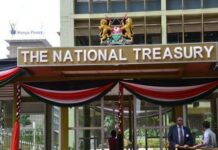Kenya Power will not offer financial payment to homes and businesses that will supply excess solar power to the national grid at their cost.
The homes will offset the cost of excess solar power injected into the grid against bills of electricity they receive from Kenya Power, according to fresh regulations. This means consumers not connected to the national grid and are using their own solar will not have an avenue to recover excess electricity sold to Kenya Power.
The regulations will guide how homes and firms producing less than one megawatt (MW) of power from solar can supply their excess electricity to the national grid under 10-year contracts.
The suppliers of excess solar power will bear the cost of injecting electricity into the national grid, including wiring and meter expenses. “Prosumers shall be obliged to pay the Licensee interconnection costs associated with their installation…. any unused credits shall be forfeited at the end of the Licensee’s financial year,” say the regulations that are undergoing public scrutiny. Prosumers are electricity consumers that are able to generate their own power mostly from renewable sources like solar and biomass.
The regulations come as a growing number of homes and businesses set up solar plants in a bid to cut reliance on the costly and unreliable supply from Kenya Power. Several companies, universities, and factories have turned to solar photovoltaic (PV) grid-tied systems to ensure reliable supply and reduced operational costs.
Under the solar deal, consumers injecting power into the national grid will get electricity credits equivalent to 50 percent of the units they buy from Kenya Power. This means the consumers injecting 400 kilowatt hour (KWh) into the grid will get credits worth 200 units of Kenya Power’s electricity.
Consumers will offset the credits with the units they buy from Kenya Power. They will be required to exhaust the credits before the end of Kenya Power’s financial year that ends in June or forfeit the accumulated power. Consumers sampled in a survey commissioned by the Energy and Petroleum Regulatory Authority (Epra) opposed the lack of financial compensation for the electricity injected into the grid.
They petitioned the regulator to allow financial compensation, citing costs incurred in setting up and maintaining their solar plants. Also Consumers opposed the rule that demand forfeiture of excess electricity at the end of every June when the Kenya Power closes its books.
Businesses and homes that inject power into grids from mini solar plants in many countries are not offered financial compensation. Some countries allow consumers to roll over unused electricity credits for more than 12 months while others pay homes and businesses for the excess power.



















